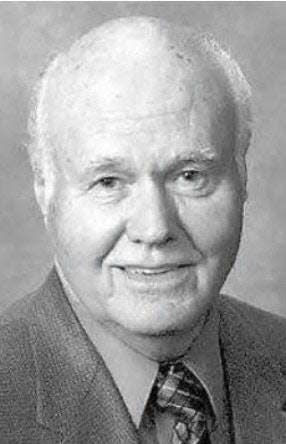Fowler commentary on cowboy culture: Gettum up, scout and hi ho, silver!
I graduated from Polytechnic High school (Poly High) in Ft. Worth in 1949 and moved to the Fowler family farm eight miles east of Farwell, Texas, to live with relatives. I was born on the farm in 1931 where my mother taught the first two grades in the Oklahoma Lane school. My father was deceased, having passed on seven months before I was born. Here, I will abandon my bio and concentrate on why I wanted to leave Ft. Worth. I was seventeen years old and wanted to be a cowboy.
I practiced roping on an unfortunate calf in the farm corral, more accurately the cow pen, until the calf got wise to me and put its nose to the ground when I entered the pen. I never learned to rope. Obviously, I couldn’t be a cowboy on the family farm, so after a few months, I moved to Amarillo to live with other relatives in Pleasant Valley. There I met my lifelong friend, Barry Ford, and we shared various adventures together, the most notable hanging my nose on a clothesline one night while running for some reason to get out of a yard. I landed on my back.

A couple of years later, I decided that I could not be a cowboy in Pleasant Valley and traded my half of a 1940 Chevrolet sedan for Barry’s 1936 Chevrolet coupe and a hundred dollars and left on my quest to be a cowboy. I headed for Colorado. I drove through the San Luis Valley past ranches and farms but never stopped. Being rather shy, I didn’t have the nerve to drive up to a ranch headquarters and ask for a job. If I had really wanted to be a cowboy, I could perhaps have found employment on a Panhandle ranch. I think I just wanted the adventure.
When I reached Pagosa Springs, I turned south, drove into New Mexico and drove down into a valley which at the time I believed to be the most beautiful sight I had ever seen. On to Santa Fe, not much more than a small village at the time, spent the night in a lodge not far from the square, and headed south the next morning with no destination in mind. Between Clines Corners and Encino, I decided to see how fast the ’36 Chevy would go. It reached sixty miles an hour and threw a rod through the oil pan. The upshot was that I hitched a ride into Encino, went to a garage where the mechanic was also the sheriff, was towed into Encino, sold the sheriff, who was also a dirt-track racer, the Chevy for twenty-five dollars, and caught a bus back to Amarillo. I was gone three days.
What is my purpose in recounting this personal experience? To emphasize that we Texans live in a cowboy culture, even though most of us are not cowboys. We do have a state full of real cowboys and ranchers. The rest of us are pretend cowboys, drugstore cowboys, or, as Mel Tillis sang to us, Coca Cola Cowboys. We wear cowboy hats, wear cowboy boots and belts — to put it plainly, “All hat and no cattle!”
I do not ridicule the culture. I savor the history of our state and think of myself as being well-versed in that history. When I moved to Amarillo way back then, I bought a cowboy hat and cowboy boots that I regretted wearing years later when my toes were deformed from the pointy toes. I like to see the big hats and big belts on numerous boys and men and respect them for holding on to our traditions. Unless you see the work-worn boots with spurs hanging on them, you can accept that most are not real cowboys. The fedora-clad folks of the northeast have their own traditions as do other sections of our great nation, and I respect them for upholding their own traditions. I doubt most of those who dress like Paul Bunyan in the Midwest are real lumberjacks. Those who are, I lift my flap-eared, wool cap to you.
I’ll end with this little anecdote. When my younger brother (ten years younger) was nine years old, he entered a national contest in which the prize was a Lone Ranger costume with a cap pistol and handcuffs. After all, the Lone Ranger was a Texas Ranger. My brother won. Years later, he told me that he wanted to win the contest so that he could handcuff the little girl up the street and kiss her. For some reason he didn’t tell me the result. I suspect that if he succeeded in handcuffing her, she ripped the handcuffs off and slapped him. Even cowboys don’t always win.
Carl Fowler is a retired professor of English at Amarillo College and lives in Amarillo.
This article originally appeared on Amarillo Globe-News: Fowler columnist writes about cowboy culture of all kinds
